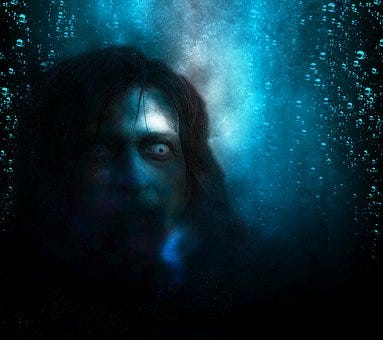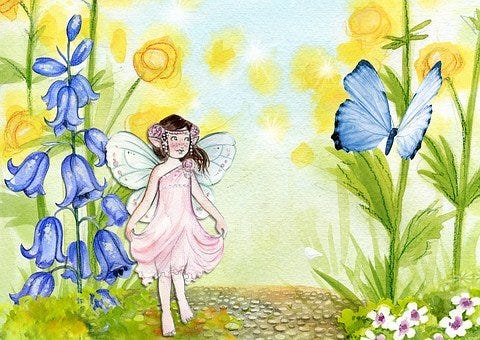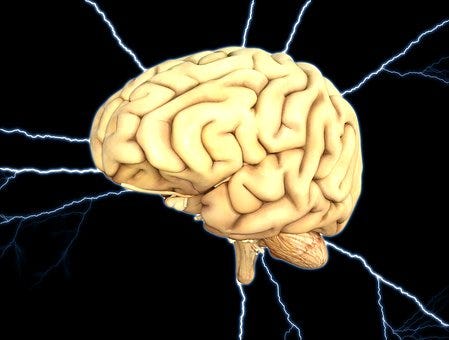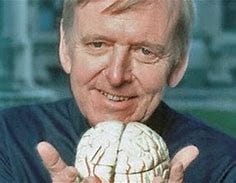
This is the latest in a series called The Supernatural Origin of the Natural, which is a response to an article by Ted Wade on Medium.com, which claimed that the supernatural is a figment of humans’ imagination. I am arguing the contrary. In the earlier articles, I have offered some evidence for belief in the supernatural in general. Now I’m going to turn to the crux of the matter, which was the main point of Wade’s article, the existence or otherwise of various discarnate entities.
In the very first article I mentioned some examples which, if real, would seem to exist at various levels of reality outside space-time or, at the very least, are invisible to humans in their everyday consciousness:
- spirits of various kinds, whether formerly human and now in the afterlife, or otherwise
- demons
- elemental beings, otherwise known as nature spirits, e.g. fairies, elves
- gods, goddesses, angels, and any other such high-level beings.
Wade believes that these are “avatars of our primitive past”, and in our correspondence since his article has talked about “the human tendency to seek meanings by creating imaginary entities capable of agency, of willful interference in our lives”. He is therefore a firm non-believer. He wants me to say more about discarnate entities before commenting further, and wants the answers to some questions:
- By any reckoning, there are a lot of them. Why would there be so many types?
- Would they be aware of each other?
- Would they exist as factions in some higher civilization?
- Do they toy with us and, if so, why would they care about us at all?
The simple answer to all these questions is, obviously, we just don’t know. How could we, given that we are mostly incapable of even perceiving these beings, let alone have access to their way of life and thoughts? The articles to follow will nevertheless attempt to address these questions insofar as that is possible, but here are some provisional suggestions to get us started.
Why wouldn’t there be many types? Our planet is inhabited by thousands of species of creatures, amazingly varied, some extraordinarily weird, as you will know if you watch nature documentaries. Why should other levels of reality be any different?
It seems that beings on higher levels, living in a higher dimension, can be aware of everything below them. It is difficult for a lower-level being to be aware of entities existing in a higher dimension. So it would be logical, but not necessarily true, to assume that high-level beings would be aware of nature spirits and demons, but not necessarily vice versa.
It’s not clear whether they are factions, or whether they live in civilizations; it would depend what you mean by those terms. But, if they exist, they do live at other higher levels of reality.
I’ll provide evidence that they do certainly toy with us, and much worse. Why do they do this? You’d have to ask them, but in the case of demons, on the whole, it’s because they’re evil.
Wade is keen on Julian Jaynes, whom he considers to be a “controversial genius”. Jaynes is the author of The Origin of Consciousness in the Breakdown of the Bicameral Mind, published back in the 1970s. There he suggests a theory, based on right and left brain psychology, as to why early humans mistakenly believed voices in their heads were gods and goddesses. Their powers of self-awareness and knowledge of psychology were not sophisticated enough to understand what was really going on, he believes.
He might be right, but it should be obvious that everything that Jaynes says must be speculation. How can we possibly know for certain what was going on inside the minds of humans several thousand years ago? He starts from the preconceived belief that spirits and deities do not exist, and therefore has to hypothesise an explanation. The exact opposite to this may be true. I have written about this elsewhere (in this article), so I’ll begin by quoting myself: “We assume perhaps that people have always experienced the world in the same way that we do (saw through similar eyes, heard through similar ears), but formerly misinterpreted it, naïvely believing that hidden agencies were at work behind the weather, and so on. This is not necessarily true. It is reasonable to assume that through the centuries, consciousness, and the relationship between consciousness and the unconscious psyche, have themselves evolved. My assumption is that ego-consciousness has gradually become stronger, and that in the past the boundary between psyche and the material world was less pronounced. We might perhaps say that daily life once had more of a dreamlike quality. This would mean that, if nature spirits, or for that matter any spirits, do actually exist, then people in earlier times might have had a direct experience of them, and that is why they believed in them”.
I then went on to quote Jonathan Black, who has been an important source in other recent articles of mine (for an explanation see footnote 1). He says: “In the ancient world experience of spirits was so strong that to deny the existence of the spirit world would not have occurred to them. In fact it would have been almost as difficult for people in the ancient world to deny the existence of spirit as it would for us to decide not to believe in the table, the book, in front of us”².

So, the ancients were not necessarily imagining these things; they were possibly literally aware of the reality of all kinds of spirits. I admit, of course, that this is also pure speculation, along the lines of Jaynes, but it is an equally possible and credible scenario — we just don’t know. So, rather than try to speculate about the psychology of the distant past, about which we can know nothing for certain, now that we have superior knowledge of the brain and psychology, wouldn’t it be better to study evidence from recent times and the present day?
There is a problem for the point of view of Jaynes and Wade, which is that, despite the ‘Enlightenment’ and the ‘progress’ of science, modern people are still having direct and powerful experiences of the same ‘illusions’, if that is what they are. If nothing else, this means that they cannot be simply dismissed as the misguided fantasies of our ancestors, and have to be explained within the framework of modern neuroscience and psychology.
In the articles which follow I’ll explore modern experiences of at least some of the categories mentioned above. On both sides of the argument, we have people who think the other side don’t want to face the facts. Atheists and materialist scientists say that religious people and believers in the supernatural seek false comfort in the hope of an afterlife, because they cannot face the unbearable fact of death being the end. They pride themselves on being superior beings for having faced the uncomfortable fact of the meaningless, pitifully indifferent universe. Believers in the supernatural, on the other hand, think that materialist scientists seek false comfort in their beliefs, because they have an irrational fear of the paranormal and the supernatural. They have somehow allowed themselves to be brainwashed by the false worldview of Enlightenment science.
So let the debate begin. In the examples in the following articles, since the phenomena are all apparently real, and many of them have been attested by several witnesses, I suggest that the onus will be on the doubters, if they don’t believe in the supernatural, to explain how the brain manages to create such illusions.

Footnotes:
1. Jonathan Black is the author of The Secret History of the World (Quercus, 2010), which is a compendium of knowledge which “has been taught down the ages in certain secret societies” (p17), “common to Mystery schools and secret societies from all over the world” (p25). His book “is the result of nearly twenty years’ research” into esoteric texts. More significantly, however, he was “helped to understand these sources by a member of more than one of the secret societies, someone who, in the case of one secret society at least, has been initiated to the highest level”. Black “had been working for years as an editor for one of London’s larger publishers”. One day this man walked into his office; he “was clearly of a different order of being” (p 23–24). They became friends, and this man became Black’s mentor, educated him in these secret teachings. That background information is my attempt to suggest that Black should perhaps be taken seriously.
2. The quote is on page 58 of his book.
